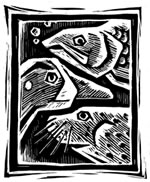- Home
- Restoration Projects
- Project Search
- Mussel Tissue and Sediment Hydrocarbon Data Synthesis 1989-1995 TS01
Project Information
Title: Mussel Tissue and Sediment Hydrocarbon Data Synthesis 1989-1995 TS01
Project Year and Number: 1992: TS01
Other Fiscal Years and Numbers for this Project: 2010: 10100290, 2009: 090290, 2008: 080290, 2007: 070290, 2004: 040290, 2003: 030290, 2002: 02290, 2001: 01290, 2000: 00290, 1999: 99290, 1998: 98290, 1997: 97290, 1996: 96290, 1995: 95290, 1994: 94290, 1993: 93053, 1991: TS01, 1990: TS01, 1989: TS01
Principal Investigator (PI): Jeff Short (NOAA )
Managing Agency: NOAA
Assisting Personnel: Byron Morris, Jeep Rice
Research Location: All Spill Affected Areas
Restoration Category: Damage Assessment
Injured Resources Addressed: Not Specified
Abstract: To document the exposure of natural resources to oil spilled by the T/V Exxon Valdez, NRDA projects collected samples of these resources to be analyzed for petroleum hydrocarbons. The data from the analysis of these samples define the exposure of that resource to spilled oil, indicate the possible effects of the oil on the resource, and provide information on the subsurface transportation and residence time of the oil. These uses require that the analytical data be accurate, precise and comparable across projects and throughout the time of the NRDA process. Technical Services #1, a cooperative project between NOAA and USFWS, coordinates the chemical analysis of all samples collected by the NRDA studies to develop a single set of analytical data from the Exxon Valdez NRDA effort. This data set is made up of data and information from all the NRDA projects, supports all the NRDA projects and allows the synthesis of the individual project data and information to form general interpretations and system wide conclusions. The NOAA manages those samples from federal or state studies involving water, sediment, fish, shellfish and marine mammals with the exception of sea otters. The NOAA managed samples represent 90% of the samples in the sample inventory. The USFWS manages those samples from studies involving birds, sea otters and terrestrial mammals. The majority of these samples are being analyzed through a USFWS contract with Texas A&M University, the remainder by NOAA/NMFS laboratories. The NOAA bears main responsibility for implementing the Quality Assurance programs and updating and maintaining the sample inventory and analytical databases.Proposal: View (20 KB)
Reports:
Final Report: Not Applicable to this Project
Publications from this Project: None Available
